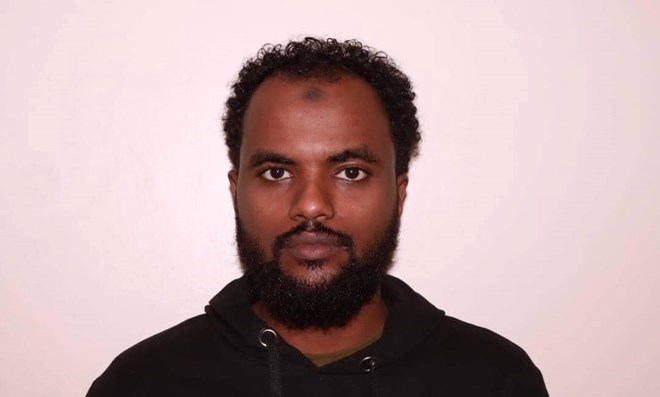
Mohamed Olad Hassan
Saturday September 30, 2023

WASHINGTON — Somali security forces on Friday arrested a man believed to be one of the country’s main illegal arms dealers suspected of supplying weapons to al-Shabab militants.
Zakariya Kamal, who is accused by Somali authorities of conspiracy to provide weapons, material support or resources to al-Shabab, a designated terrorist organization, was arrested in the early morning hours by Somalia's National Intelligence Agency, or NISA.
An NISA statement said Kamal was preparing to go into hiding when he was intercepted by security forces.
“This notorious arms dealer, Kamal, was arrested as he was preparing to disappear and seek out the elusive hideouts of the al-Shabab within Somalia,” the statement said.
The 28-year-old Somali has been under surveillance since May, the statement said, shortly after the agency seized two illicit shipments of military hardware and explosive materials “that were apparently bound for the al-Shabab militant group.”
NISA said Kamal was the mastermind of the arms dealers’ network that arranged, procured and imported shipments from abroad. The military equipment was confiscated in multiple seizures at Mogadishu's Aden Ade International Airport and the seaport.
According to NISA, an investigation relating to the illicit shipments led to the arrest of 10 individuals associated with a smuggling network. NISA did not provide further details on components of the seized shipments, where they were from or the identities of those involved.
It is also not clear if Kamal was a member of al-Shabab or if he only had a business relationship with the group, trafficking in illegal arms.
Arms embargo
The United Nations Security Council imposed an arms embargo on Somalia in 1992 because of civil war and factional violence.
The country has an unguarded coastline that's more than 3,000 kilometers (1,864 miles) in length and open borders.
Following the establishment of a functioning transitional government in 2012, successive administrations have been working to rebuild stability, good governance and other benchmarks to help ease the country's arms embargo.
In 2013, the U.N. Security Council unanimously voted to partially lift its ban on selling arms to Somalia for a year.
The resolution allowed Somalia's government to buy small arms to help its security forces develop and fight Islamist militants but kept restrictions on heavy weapons.
The remaining sanctions, which require requests for certain weapons to be approved, are renewed annually, despite government objections that al-Shabab still poses a serious threat to peace and stability in the region and that sanctions are needed to degrade its activities.
The government's stance is backed by Ethiopia and Uganda, both of which have suffered al-Shabab attacks.
The government of President Hassan Sheikh Mohamud has for months been engaged in an offensive against al-Shabab, including efforts to shut down its financial network and a campaign to counter the group's ideology. Mohamud has urged the U.N. Security Council to lift the arms embargo, saying it no longer serves its purpose.
Speaking before the U.N. General Assembly last Saturday, Somali Prime Minister Hamza Abdi Barre also reiterated calls for the removal of the arms embargo, saying that Somalia had the necessary systems and competence to control the possession, use and storage of firearms.
"Lifting this embargo would allow us to combat terrorism even more effectively and build a peaceful and prosperous future in Somalia," he said.